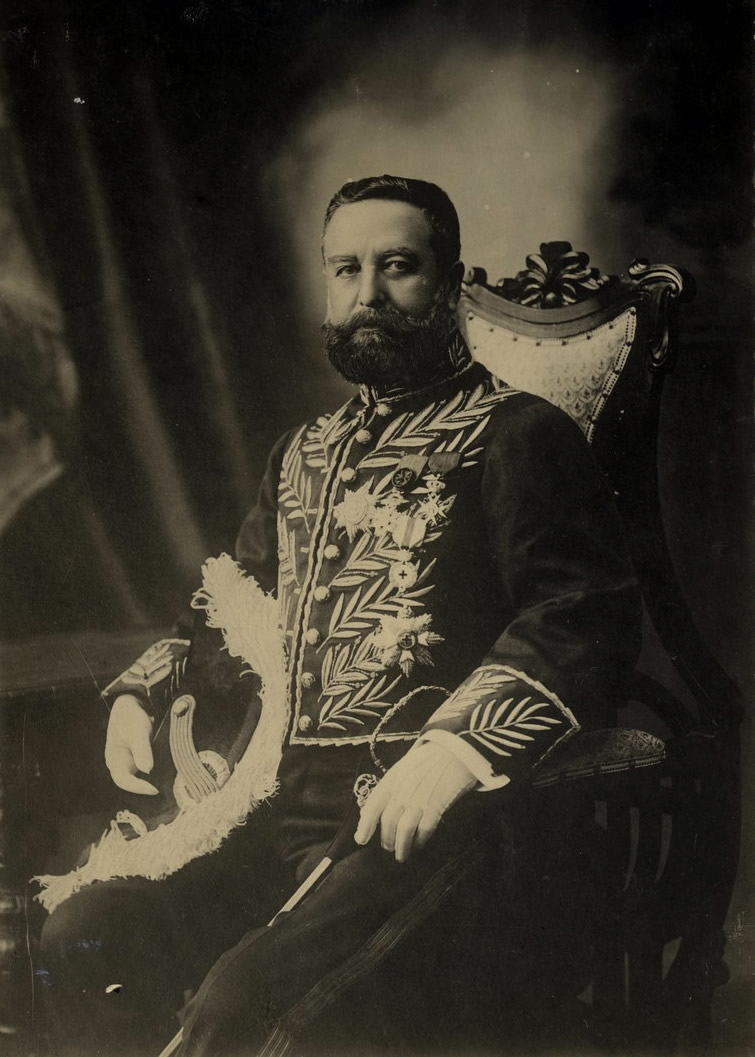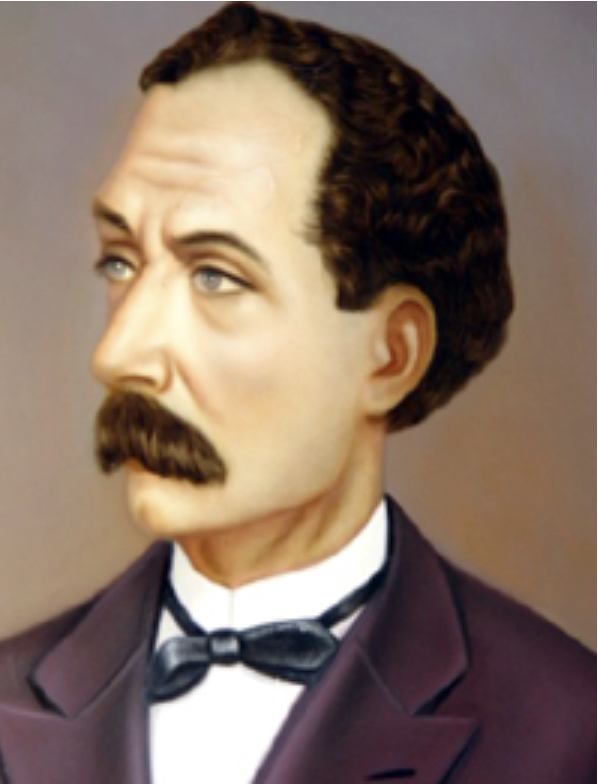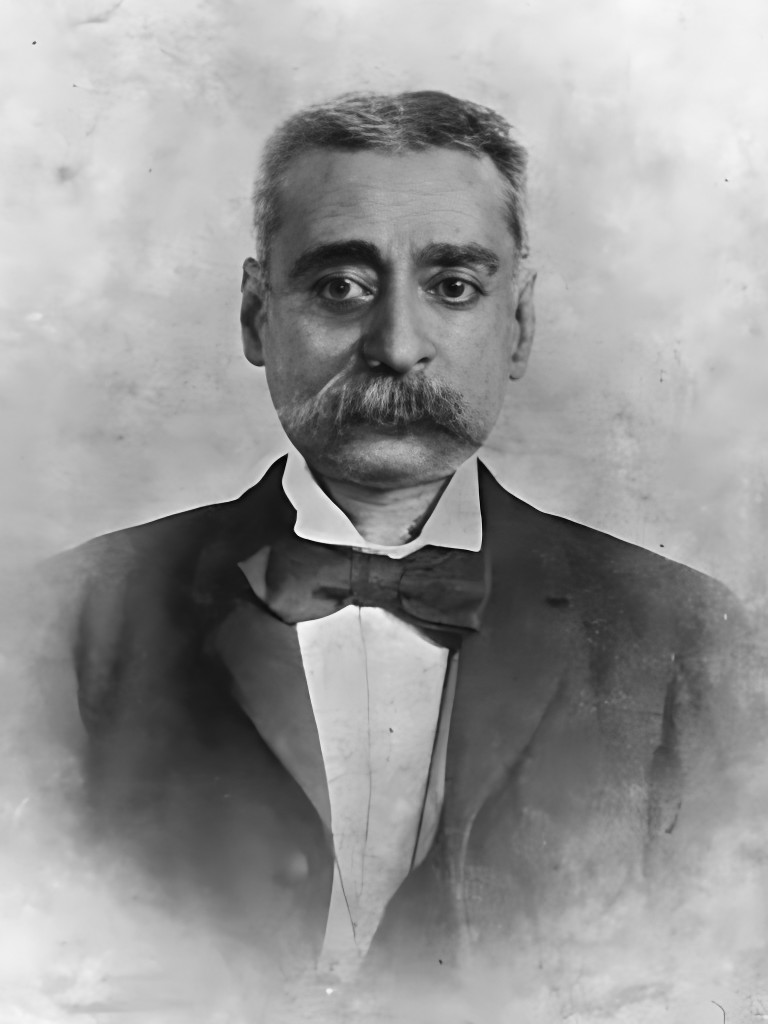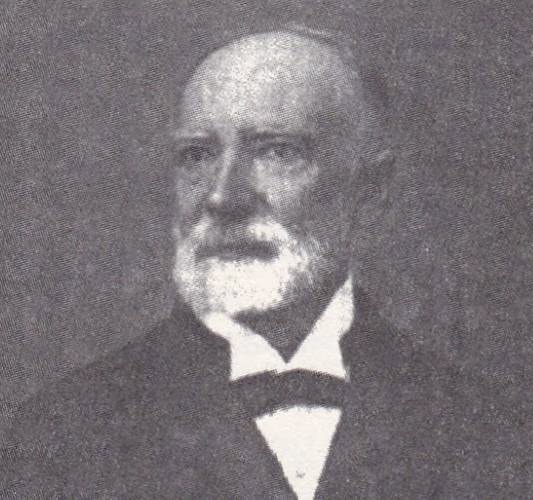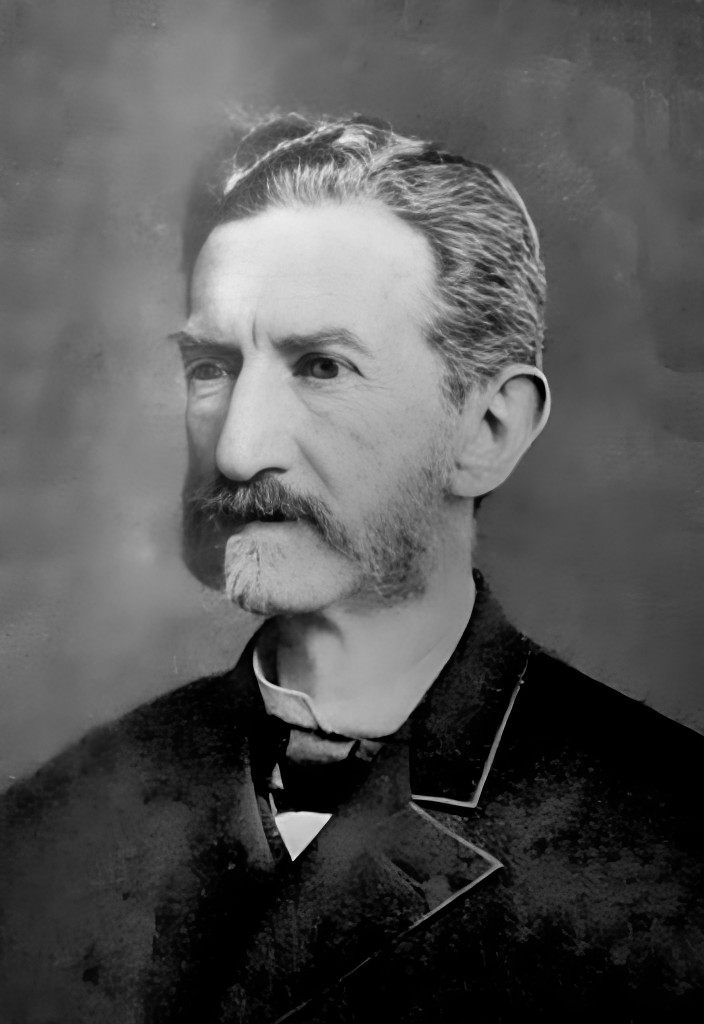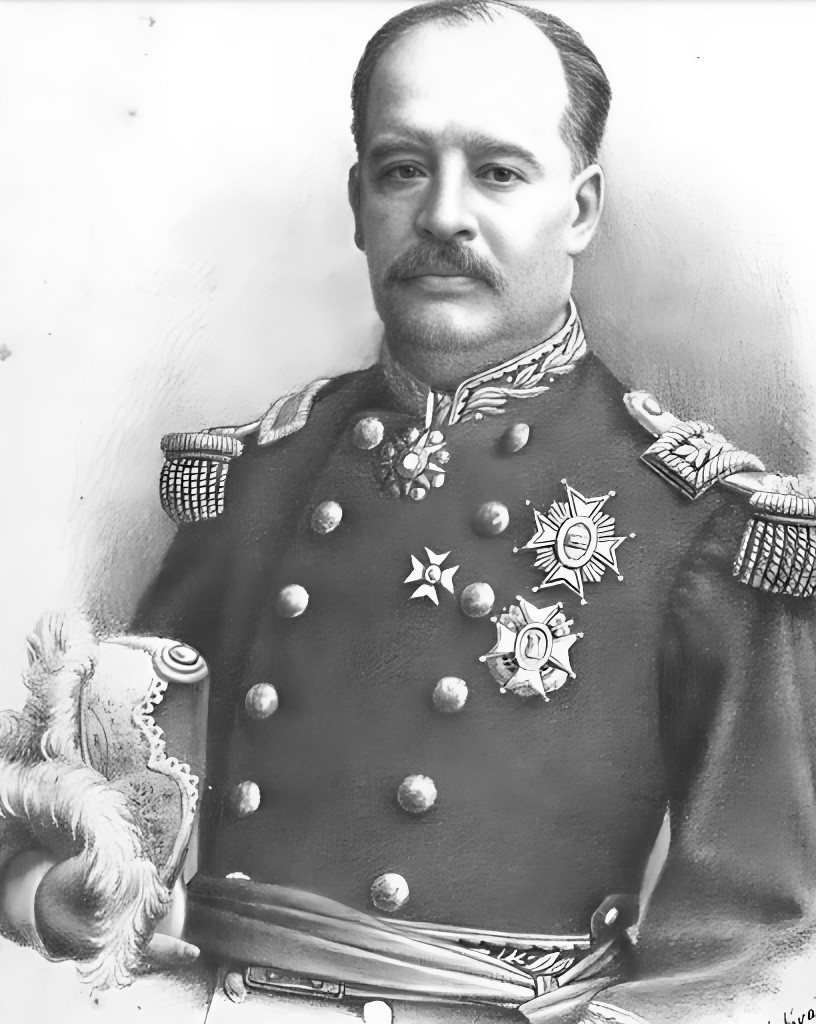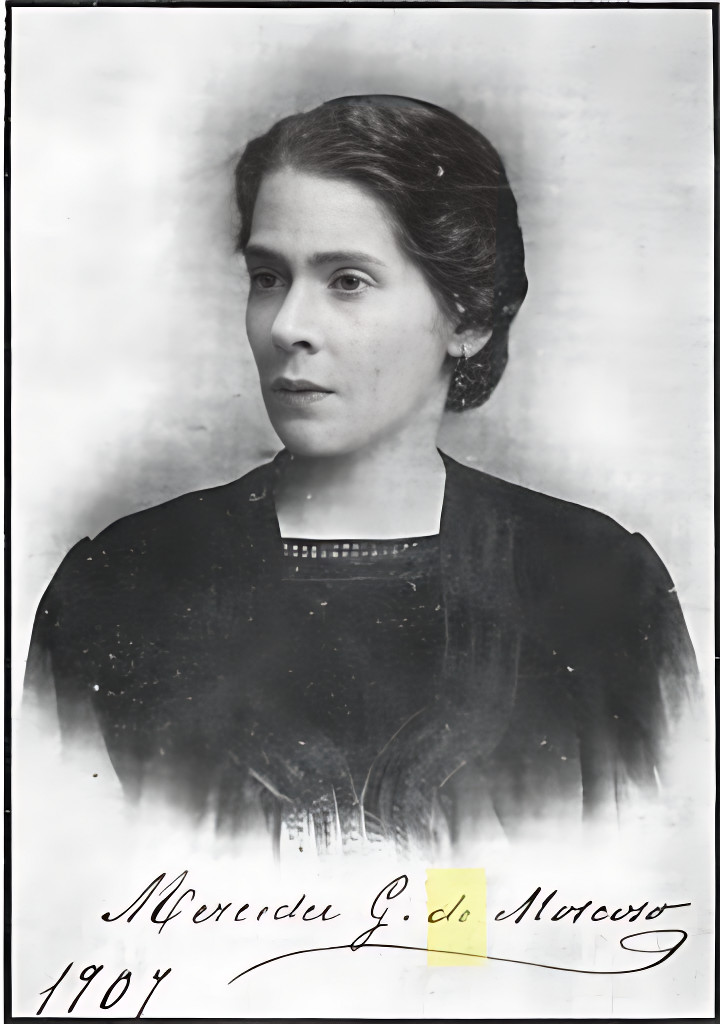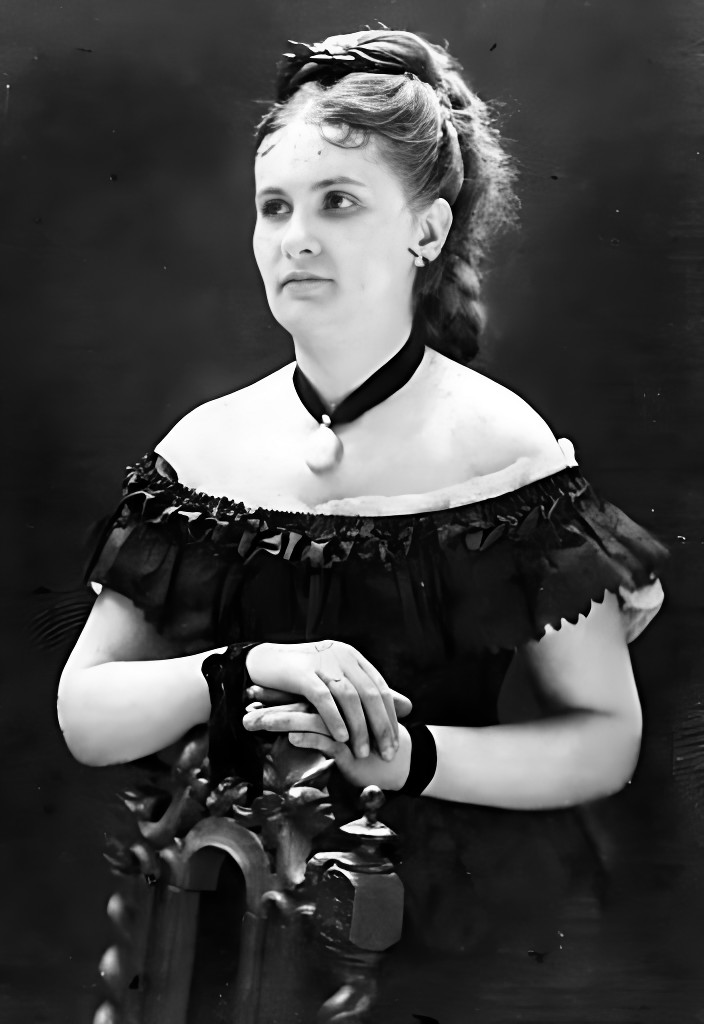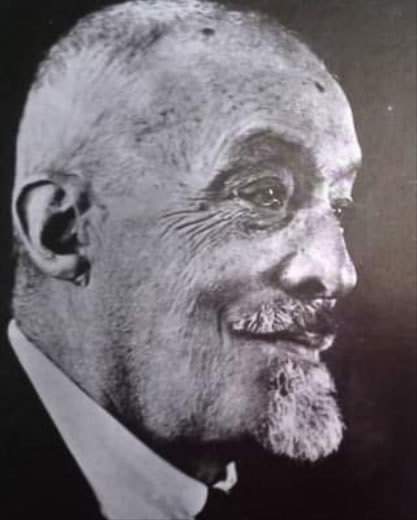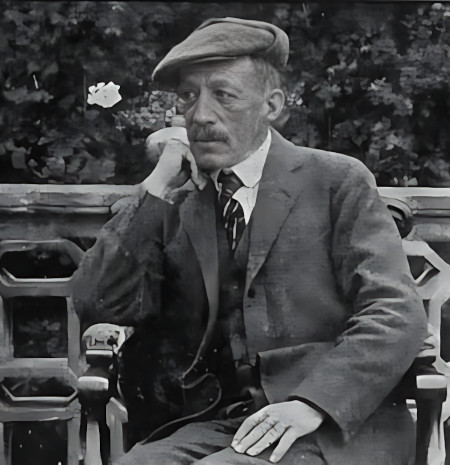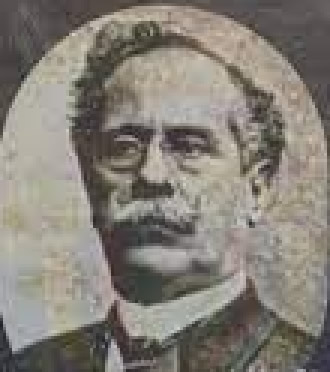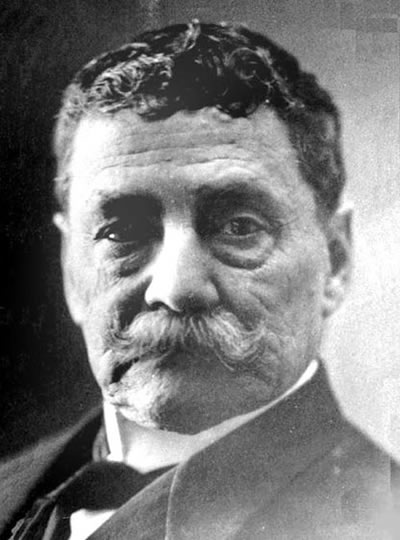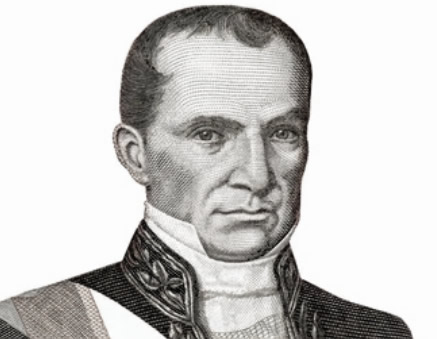José Peralta Serrano (Chaupi-Yunga, Gualleturo, present day Cañar, 1855 – Quito, December 27, 1937) was an Ecuadorian lawyer, politician, diplomat, educator, writer and journalist who founded several liberal journals in the 19th and early 20th century. He is considered the greatest ideologue of the Liberal Revolution. His works, such as “¿Ineptitud o traición?” (1904), “Tipos de mi Tierra” (1910), “El régimen liberal y el régimen conservador juzgados por sus obras” (1911), and “Eloy Alfaro y sus victimarios” (1951) are an invaluable part of Ecuadorian literature’s heritage. He was an ally of Eloy Alfaro (President of Ecuador from 1895 to 1901 and from 1906 to 1911) and held various diplomatic and public posts during Alfaro’s rule. He was one of the drafters of the 1906 constitution. He was proposed by Alfaro as a candidate to succeed him as president of the republic, which he declined in order to avoid violence from conservatives factions.
Continue reading “José Peralta”Category: 19th Century Writers
Etelvina Carbo Plaza
Etelvina Carbo Plaza (Daule, Ecuador, March 18, 1834 – Lima, Peru, March 22, 1902) was an Ecuadorian poet known for her contributions to Romantic poetry. Raised in an intellectual environment, she began writing poetry as a teenager, focusing on themes of love, patriotism, and devotion to God. Her work reflected personal and political struggles, particularly influenced by her family’s exile due to political upheaval. Some of her notable poems include Las Flores de mi Jardín and La Partida. Despite not gaining widespread recognition during her lifetime, she posthumously became a significant figure in Ecuadorian literature, with schools and literary societies established in her name. Her poetry remains a testament to 19th-century Ecuadorian Romanticism.
Continue reading “Etelvina Carbo Plaza”Miguel Riofrío
Miguel Riofrío Sánchez (Loja, Ecuador, September 7, 1822 – Lima, Peru, October 11, 1879) was an Ecuadorian poet, novelist, journalist, orator, educator, lawyer, and politician. He is best known today as the author of “La Emancipada,” Ecuador’s first novel, which was published in installments in the newspaper La Unión in 1863. Many experts however argue that because the book is usually less than 100 pages long in print, it is really a novella rather than a novel, and that Ecuador’s first novel is in fact “Cumanda” (1879) by Juan León Mera. Nonetheless, Miguel Riofro’s “La Emancipada” has been accepted as Ecuador’s first novel, thanks to the arguments of the well-known and respected Ecuadorian writer Alejandro Carrión (1915-1992).
Continue reading “Miguel Riofrío”Manuel Gallegos Naranjo
Manuel Gallegos Naranjo (Guayaquil, March 26, 1845 – Ibídem , 1917) was a prominent Ecuadorian chronicler, novelist, and poet during the late nineteenth and early twentieth centuries. In 1871, he founded the magazine Espejo, which provoked the ire of President Gabriel García Moreno, leading to Gallegos Naranjo’s exile to Chile. Upon his return to Ecuador, he supported General Ignacio de Veintimilla and established the newspaper Ocho de Septiembre, receiving a government salary. He eventually relocated to Quito. In 1878, he began publishing his initial works as a writer. Subsequently, he released a critical loose leaf targeting Juan León Mera, a supporter of García Moreno. Gallegos Naranjo contributed to the newspaper La Nación in his hometown and served as the editor of Diario Los Andes. In 1883, he published “El Almanaque Ecuatoriano” [The Ecuadorian Almanac] a comprehensive reference containing valuable information across its extensive 300-page content. In 1895, he suffered from thrombosis, leaving him wheelchair-bound. Gallegos Naranjo’s work “Celebridades Malditas” is a historical novel that delves into the lives of infamous characters from old Guayaquil who became entangled in criminal activities due to their ill-fated choices. This novel has been reprinted by the Editorial of the Municipal Library of Guayaquil. Additionally, six of his unpublished works are preserved in the Carlos Alberto Rolando National Authors Library in Guayaquil.
Continue reading “Manuel Gallegos Naranjo”Belisario Peña
Belisario Peña Gómez (Zipaquirá, Colombia, August 5, 1834 – September 7, 1906) was a Colombian poet and educator in Ecuador. At the request of Miguel Riofrio, Ecuador’s Charge d’Affaires, he moved to Ecuador to help found a school with Riofro, Benjamn Pereira Gamba and Francisco Ortiz Barrera. The school, “Colegio de la Unión,” opened on July 20, 1857 at the Santo Domingo de Loja temple. At the beginning of 1860, the Provisional Government of Quito called on Peña and Barrera to found the Colegio de la Unión in Ecuador’s capital. The new Colegio de la Unión opened its doors in Quito on March 2, 1861. Then President García Moreno ordered the merger of the Colegio de la Unión of Quito with the “Nacional” recently created for the Jesuits, who renamed the combined school “San Gabriel.” In 1875 he was a founding member of the Ecuadorian Academy of Language. In 1889 he and Carlos Casares resigned from the Ecuadorian Academy of Language due to the political dispute between the conservatives led by José Modesto Espinosa, against the progressives. In 1912 his friend the Archbishop of Quito, Federico González Suárez, compiled his poems and published them in a volume entitled “Composiciones poéticas del Sr. Don Belisario Peña” [Poetic compositions of Mr. Don Belisario Peña] in 334 pages. preceded by a prologue by González in 62 pages. In 1932 Manuel María Pólit published 11 more poems, minor but not unworthy; among them a translation of Manzoni entitled “El día de la Primera Comunión.” An additional 16 poems are compiled in the Library of the Jesuits of Cotocollao, one of them of great interest, in honor of General Tomás Cipriano de Mosquera. Belisario Peña’s biography was written and published in Colombia by scholar Roberto M. Tisnés J. CMF.
Continue reading “Belisario Peña “José Modesto Espinosa
José Modesto Espinosa y Espinosa de los Monteros (Quito, December 2, 1833 – December 21, 1915) was an Ecuadorian writer, politician, and founding member of the Ecuadorian Academy of Language. He held several important posts during General José María Urbina’s rule, including State Councilor and Senator for Tungurahua province. He was persecuted for his critical articles against General Ignacio de Veintemilla and served as Minister of the Interior and Foreign Affairs during the Progressive era of Ecuador’s history. He held other ministerial positions and was elected President of the Supreme Court of Justice in 1894. However, after being accused of being a right-wing conspirator by General Eloy Alfaro in 1896, he was exiled from Ecuador. He returned to Quito in 1901 and was elected Senator for the Pichincha province in 1902.
Continue reading “José Modesto Espinosa”General Francisco Javier Salazar
General Francisco Javier Salazar Arboleda (Quito, January 11, 1824 – Guayaquil, September 21, 1891) was an Ecuadorian lawyer, writer, militarist, and politician. He wrote several works of a military, didactic and educational nature, including: “Método de Enseñanza Primaria,” “Pronunciación del Castellano en el Ecuador,” and “Instrucción de Esgrima a la Bayoneta,” to name a few. He was a founding member of the Ecuadorian Academy of Language, as well as a member of the National Scientific and Literary Academy of Quito, the Royal Society of London, the Lima Athenaeum, the Academy of History of Madrid, and the Seville Royal Academy of Literature, among others.
Continue reading “General Francisco Javier Salazar”Mercedes G. de Moscoso
Mercedes González de Moscoso (Guayaquil, October 12, 1860 – Quito, November 23, 1911) was a prominent Ecuadorian poet and playwright, considered the leading figure of the country’s second Romantic movement. Her poetry focused on themes of family, motherhood, and domestic life, often expressing a deep melancholic tone shaped by personal loss. Among her most notable works are Reminiscencias (1890), En el Nido (1899), and Cantos del hogar (1909). She also wrote plays, including Martirio sin culpa and an adaptation of her poem Abuela into a three-act play, both produced in 1907. Her work made her an important voice in Ecuadorian literature and feminist circles.
Continue reading “Mercedes G. de Moscoso”Dolores Sucre
Dolores Sucre y Lavayen (Guayaquil, November 1837 – Guayaquil, June 5, 1917) was a writer, poet, and a descendant of South American independence leader Antonio José de Sucre (1795-1830). In 1883, she recited her poems at the Centenary of the Liberator’s Birth and the inauguration of the statues of Simón Bolívar and Vicente Rocafuerte. On December 9, 1905, Ms. María Sánchez Urbina presented her with the Golden Lyre at the Olmedo Theater in Guayaquil, and the poet Numa Pompilio Llona dedicated a sonnet to her entitled “A Dolores Sucre,” to which Dolores modestly recited her poem “Mi Gratitud.” Her prolific literary work was published in Ecuador’s main newspapers and magazines, and she was admired in Peru by literary personalities such as Ricardo Palma, Carlos G. Amézaga, Teobaldo Corpancho, and Clorinda Mattos de Turner.
Continue reading “Dolores Sucre”Augusto N. Martínez
Augusto Nicolás Martínez Holguín, aka Augusto N. Martínez (Ambato, March 25, 1860 – March 19, 1946) was an Ecuadorian volcanologist, geologist, agronomist, scientific explorer, historian, writer, translator, and educator. His works contributed to the geological knowledge of the volcanic region in Ecuador. They include: “Crónica de los fenomenos volcánicos y terremotos en el Ecuador” [Chronicle of the Volcanic Phenomena and Earthquakes in Ecuador] (1896), “Algunas montañas volcánicas” [Some Volcanic Mountains] (1905), and “Vulcanologia y geología de los Andes ecuatorianos” [Volcanology and Geology of the Ecuadorian Andes] (1905). He also left a great legacy of photographs of the volcanoes he visited, which later were a great help to other climbers. His other works include themes such as science, history, scientific research, and exploration. He was a corresponding member of the National Academy of History, the Deutsche Gesellschaft für Geowissenschaften [German Geological Society], and the Société astronomique de France [French Astronomical Society]. He was fluent in English, French, and German, as well as his native Spanish. He translated several works from German and French into Spanish, particularly the valuable writings of his mentor Father Luis Dressel, with whom he ascended to some mountains and volcanoes in Ecuador. In 1920, he was honored by the French Academy of Sciences for his work.
Continue reading “Augusto N. Martínez”Anacarsis Martínez
Anacarsis Martínez Holguín (Ambato, July 16, 1862 – Ambato, April 1930) was an Ecuadorian writer, satirist, journalist, and politician known for his liberal activism and pioneering efforts in Ecuador’s early wine industry. Born into a prominent family, he was influenced by European intellectual traditions and pursued his education with the Jesuits in Quito. Martínez co-founded the anarchist newspaper El Combate and later launched La Avispa, a satirical publication that sharply critiqued Ecuador’s political elite. Throughout his career, he held positions as Deputy and Governor of Tungurahua, and although he was offered ministerial posts, he declined them, preferring independence. His work extended to managing the family’s Catiglata vineyard, where he applied winemaking techniques he had studied in France. Martínez’s writings, including his satirical novel El desfalco, provided pointed commentary on Ecuadorian society, solidifying his legacy as a bold voice for liberalism in early 20th-century Ecuador.
Continue reading “Anacarsis Martínez”Francisco Martínez Aguirre
Dr. Francisco Martínez Aguirre (Baba, Ecuador, January 6, 1850 – February 8th 1917) was an Ecuadorian physician, medical professor, statesman, journalist, publisher, editor, caricaturist, and poet. He received his medical degree from the University of Pennsylvania in the United States in 1871, at the age of 21. During his time in the United States, he also became a Freemason. He held several high-level political positions in Ecuador’s government as well as high-level academic positions in Ecuadorian medical schools throughout his life. He worked as a professor at the Medical School of the Central University of Ecuador from 1878 until 1910. From 1898 and 1907 he served as Dean of the Faculty of Medicine of the University of Guayaquil. On November 7, 1885, he founded the satirical weekly “El Perico,” which called attention to issues of the time through poetry, political cartoons, and humor. The newspaper, whose motto was “Each bird cuts his own quill and proceeds,” quickly became popular, perhaps more so than any other newspaper had before. In 1886, for his role as the publisher/editor of “El Perico,” he was arrested and exiled to Peru. In his later years he became a close collaborator of President Eloy Alfaro. In the two critical years preceding President Eloy Alfaro’s murder (1910 and 1911) he was one of five ministers in Eloy Alfaro’s Cabinet, serving as Minister of Defense. After Eloy Alfaro’s murder, he went into voluntary exile in Chile from 1912-1915.
Continue reading “Francisco Martínez Aguirre”Temístocles José Araúz Rojas
Dr. Temístocles José Araúz Rojas (Machala, October 14, 1871 – ?) was an Ecuadorian doctor, writer, and politician. His best known work is the hymn of El Oro province. He wrote political articles for several newspapers in the country, including El Telégrafo, Diario de Avisos, and El Tiempo. He served as governor of El Oro province and then senator for 9 years.
Continue reading “Temístocles José Araúz Rojas”Roberto Andrade
Roberto Andrade Rodríguez (October 26, 1850 – October 27, 1938) was a politician, historian, author and polemicist. He was a participant in the assassination plot against President Gabriel Garcia Moreno. On August 6, 1875, Garcia Moreno was beaten with a machete while three or four others shot revolvers at him. Andrade landed a deadly shot to Moreno’s forehead. Throughout his life Andrade was persecuted for his polemicist essays and political ideology. “Pacho Villamar,” his semi-autobiographical work from 1900, is widely considered Ecuador’s first political novel.
Continue reading “Roberto Andrade”Vicente Rocafuerte
Vicente Rocafuerte Bejarano (Guayaquil, May 1, 1783 – Lima, Peru, May 16, 1847) was an independence leader, statesman, diplomat, politician and writer. He was born into wealth and was educated in Spain. He returned to Ecuador in 1807 and was instrumental in freeing the country from Spain and, subsequently, from Gran Colombia. He served in the National Congress, as governor of Guayas Province, and as the second president of Ecuador (from 1834 to 1839). Rocafuerte’s writings on political systems, social reform, religious toleration, and economic development had significant influence on liberals in several Spanish American nations. Several schools and various awards are named after him, and many statues throughout Ecuador stand in his honor.
Continue reading “Vicente Rocafuerte”